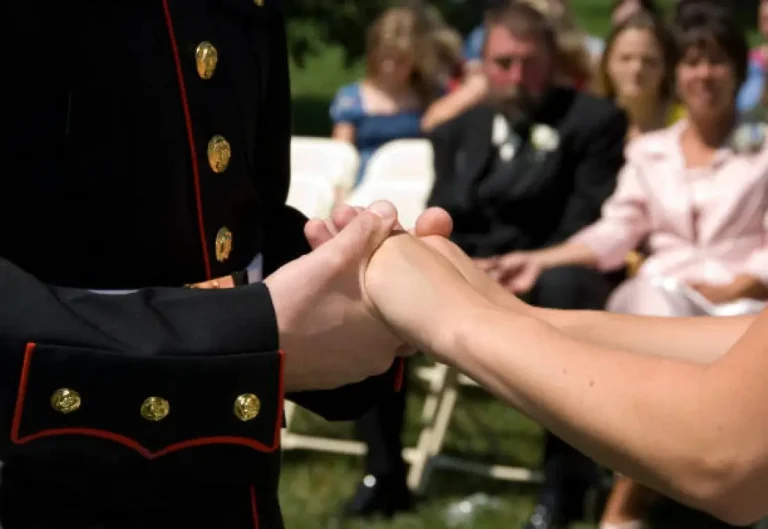The Date That Changed Everything: Why I Should Have Trusted My Instincts
What started as a seemingly perfect first date turned into a viral sensation when one man’s shocking post-dinner behavior exposed a dangerous dating trend that’s more common than you might think.
When Family Matchmaking Goes Horribly Wrong
Sometimes the most important life lessons come disguised as romantic comedies that turn into horror stories. My name is Sarah, and I’m about to share a dating experience that not only changed my perspective on modern romance but also became an internet phenomenon that helped thousands of women recognize toxic behavior patterns.
It all started with my brother Marcus, who possessed the kind of well-meaning persistence that makes siblings both beloved and insufferable in equal measure. For three weeks straight, he had been championing the virtues of his pickleball partner Andy, painting him as the perfect solution to my perpetual single status.
“He’s not just any guy, Sarah,” Marcus insisted during one of his regular kitchen counter interventions, where he would appear with his protein shake and unsolicited relationship advice. “Andy is polite, intelligent, financially stable, owns his own home, drives a reliable vehicle, and here’s the remarkable part—he’s still single despite being an absolute catch.”
At 28, I had developed a healthy skepticism toward my brother’s matchmaking abilities, especially after the Kevin incident six months earlier. Kevin, you see, had turned out to be a vintage spoon collector whose emotional attachment to antique silverware bordered on the pathological.
“Kevin was an anomaly,” Marcus insisted when I reminded him of this previous disaster. “Andy is completely different. There’s something genuinely solid about him—the kind of man Mom would adore and Dad would actually respect.”
The unusual persistence in Marcus’s voice made me pause my vegetable preparation and actually consider his proposal. After a series of disappointing romantic encounters that had left me questioning whether compatible men existed outside of romantic comedies, perhaps it was time to give organized matchmaking another chance.
“One date,” I finally conceded, setting down my knife and facing my brother with what I hoped conveyed reluctant acceptance rather than complete surrender. “But if this turns into another Kevin situation, your matchmaking privileges are permanently revoked.”
Marcus’s face illuminated with the kind of joy typically reserved for lottery winners or parents watching graduation ceremonies. “You’re going to absolutely love him, Sarah. I genuinely believe this could be something special.”
Those words would haunt me within 48 hours.
The Perfect Gentleman Facade
Saturday evening arrived with the crisp clarity of autumn, and I found myself engaging in the familiar ritual of first-date preparation. Standing before my bedroom mirror at 6:45 PM, I adjusted my navy blue dress for what felt like the hundredth time, trying to strike the perfect balance between effort and casualness.
At exactly 7:00 PM—punctuality that suggested either excellent time management or obsessive personality traits—my doorbell rang with military precision.
Opening the door revealed Andy holding a small bouquet of wildflowers wrapped in brown paper with what appeared to be hand-tied ribbon. He was tall, well-groomed, and dressed in a crisp button-down shirt and properly fitted jeans. His smile radiated the kind of genuine warmth that made me momentarily forget about Kevin’s spoon grading system.
“I didn’t know your flower preferences,” he said, offering the bouquet with what seemed like authentic thoughtfulness, “but these caught my eye at the farmer’s market this morning.”
The gesture immediately began dissolving my pre-date anxiety. He waited patiently while I arranged the flowers in a vase, making genuine observations about my apartment’s décor and book collection without the restless energy that typically characterizes men eager to move past domestic pleasantries.
“You have exceptional taste,” he commented, pausing before a framed art print I’d purchased at a local fair. “This space feels genuinely lived-in and welcoming.”
When we left for the restaurant, Andy opened the car door for me—a gesture that felt refreshingly courteous rather than performatively old-fashioned. His vehicle was clean without being obsessively maintained, and he asked about my music preferences before adjusting the radio.
The restaurant he’d chosen was a charming Italian establishment that I’d always wanted to try—the kind of neighborhood spot where mismatched furniture and handwritten specials suggested owners who prioritized culinary excellence over Instagram-worthy aesthetics.
Throughout dinner, Andy displayed the conversational skills that had clearly impressed my brother. He asked thoughtful questions about my graphic design career, listened to my responses with apparent genuine interest, and shared engaging stories about his accounting work that made a potentially dry subject surprisingly fascinating.
“I genuinely admire people who pursue creative careers,” he said while cutting his chicken parmesan with precise, well-mannered movements. “It requires real courage to make art your profession.”
When I complimented our server’s attentive service, Andy agreed enthusiastically. “Exceptional hospitality is a genuine skill. Notice how he anticipates our needs without being intrusive? That’s professional artistry.”
By the time we finished our entrees, I was experiencing something I hadn’t felt in months: genuine optimism about a potential second date. Maybe even a third. Perhaps this could be the beginning of something real and healthy and lasting.
The conversation flowed effortlessly throughout the evening. We discovered shared interests in hiking and reading, though his preferences leaned toward non-fiction while I favored literary fiction. We both struggled with social media addiction and were attempting to reduce our screen time. When he discussed his family, his voice carried authentic warmth, and his questions about mine suggested real interest rather than polite obligation.
For the first time in months, I felt hopeful about the possibility of finding genuine compatibility with someone who seemed both attractive and emotionally stable.
The First Red Flag I Should Have Heeded
When our server delivered the check with professional courtesy, I instinctively reached for my phone to summon an Uber. This wasn’t about making feminist statements or challenging gender roles—it was about safety and maintaining the personal boundaries I’d established after several uncomfortable situations where first dates had concluded with awkward negotiations and unwanted assumptions.
I have a strict rule, developed through experience and reinforced by countless cautionary tales from friends: no rides home on first dates. It’s simply safer and avoids misunderstandings about what level of intimacy might be expected in exchange for dinner and pleasant conversation.
Andy appeared genuinely surprised when he observed me opening the rideshare application. “What are you doing?” he asked, his expression shifting to what seemed like confused concern.
“Just calling a ride home,” I replied, maintaining a casual tone. “Thank you for dinner—I had a wonderful evening.”
“Absolutely not,” he said, reaching across the table to gently touch my hand in a gesture that felt simultaneously protective and presumptuous. “A gentleman ensures his date arrives home safely. That’s fundamental courtesy.”
I should have maintained my boundary. I genuinely should have, because rules like this exist for excellent reasons and are typically based on accumulated wisdom from previous mistakes. But Andy’s sincerity was compelling, and his smile—the one that had been charming me all evening—made me reconsider my carefully constructed dating protocols.
Something in his tone suggested legitimate concern for my safety rather than an attempt to extend the evening or angle for an apartment invitation. He seemed almost offended by the suggestion that I would use a commercial transportation service when he was perfectly capable of ensuring my safe arrival home.
“I always drive my dates home,” he continued with the kind of earnest conviction that suggested this was a matter of personal principle. “It’s simply the right thing to do. Besides, I want to ensure you get inside safely. You never know what kind of dangerous individuals might be lurking around.”
So I capitulated. I allowed him to pay for dinner, accepted his transportation offer, and convinced myself that my safety rule was probably unnecessarily cautious anyway.
The twenty-minute drive to my apartment proceeded pleasantly through the quiet Saturday evening streets. Andy maintained light conversation, asking about my neighborhood and commenting appreciatively on the mature trees lining my street. He made no attempts to extend the evening by suggesting additional stops, asked no intrusive questions about my living situation, and made no comments that felt like attempts to invite himself inside.
When we arrived at my building, he opened the car door for me again, escorted me to the entrance, and waited patiently while I fumbled with my keys in that awkward way that happens when you’re being observed.
“Thank you for a lovely evening,” he said, making no move to come closer or follow me inside. “I hope we can repeat this experience soon.”
“I’d genuinely like that,” I replied, meaning every word. “Thank you for dinner and the ride home. That was really thoughtful.”
When I waved from my living room window, he waved back before pulling away from the curb and disappearing into the night. I went to bed that evening feeling something I hadn’t experienced in months: genuinely hopeful about the possibility of finding love.
The Morning That Shattered Everything
Sunday morning arrived with the kind of natural awakening that suggests genuine contentment. I made coffee, checked emails, and was settling into the Sunday crossword puzzle when my phone buzzed at 7:13 AM with a notification that made me question my eyesight and mental stability.
A PayPal request. My initial assumption was spam—those ubiquitous scammers who send random payment requests hoping busy people will accidentally approve them. But when I opened the notification and saw Andy’s name attached to an itemized expense report, my brain temporarily ceased functioning.
He had sent me a bill. An actual, professionally formatted invoice for the previous evening’s transportation services.
The breakdown read like something a legitimate rideshare company might send, except instead of being a proper business transaction, it represented Andy’s calculation of what I owed him for basic human courtesy:
Gas from restaurant to apartment: $4.75 Vehicle depreciation (calculated mileage): $3.50 Downtown parking during dinner: $20.00 Cleaning fee for “puddle splash marks on passenger side”: $9.00 Total amount due: $37.25
I stared at my phone screen for thirty seconds, attempting to process what I was seeing and wondering if this represented some elaborate joke I wasn’t sophisticated enough to understand. Was this Andy’s idea of humor? Some new dating trend I hadn’t encountered? A test of my reaction to creative comedy?
But the PayPal request was completely serious, accompanied by a professional note: “Thank you for a wonderful evening! Please find attached the expenses for your safe transport home. Looking forward to our next date! – Andy”
Then I started laughing. Not polite chuckling, but full-body, tears-streaming, doubled-over laughter that echoed through my apartment and probably concerned my neighbors.
This man, who had seemed so perfect twelve hours earlier, had actually itemized the cost of basic human decency and presented me with an invoice like I was a customer who had hired professional services.
The Response That Went Viral
After laughing myself into breathless hysteria, I decided that Andy’s entrepreneurial approach to dating expenses deserved an equally creative response. If he was treating our romantic evening like a business transaction, I would demonstrate how customer service really operated.
I opened my PayPal account and sent him $50 with a carefully crafted note designed to achieve perfect balance between sarcasm and apparent sincerity: “Thank you for itemizing your gentleman services! Here’s $37.25 for your listed expenses plus a $12.75 tip for door opening, chair pulling, and overall chivalrous behavior. Please rate your customer experience five stars! Looking forward to never seeing you again! – Sarah”
I immediately blocked his number without hesitation, because any man who would bill his date for transportation costs was not someone I needed to maintain contact with, regardless of his dinner conversation skills.
But I wasn’t finished with this situation. The story was too outrageous to keep private, and Andy’s behavior was too unacceptable to allow passing without social consequences.
I immediately texted Marcus: “UPDATE: Mystery solved about why your pickleball friend Andy remains perpetually single!” followed by screenshots of both Andy’s itemized invoice and my sarcastic payment response.
Marcus called within the hour, his voice carrying shocked amusement that suggested he’d been processing my screenshots extensively.
“Sarah, I am profoundly sorry,” he said before I could speak. “I had absolutely no idea he was capable of this behavior.”
“How could you have known?” I replied, still giggling intermittently. “I’m betting Andy reserves his special entrepreneurial charm for romantic encounters.”
“Actually,” Marcus continued, “there’s more to this story. Andy was at pickleball this morning, bragging about your date and telling everyone it was ‘like something from a romantic comedy’ and that he was ‘pretty sure he’d found his future wife.’”
“Oh, it was definitely movie-worthy,” I snorted. “Just not the genre he was envisioning.”
“When I showed the guys your screenshots, the entire group went silent for thirty seconds. Then Andy said something I’ll never forget: ‘Well, chivalry doesn’t pay for itself, you know.’”
The conversation that followed revealed Andy’s complete defense of his billing system and his explanation of what he called his “dating philosophy”—treating romantic relationships like business partnerships where all expenses should be shared equally.
The Saturday morning pickleball group voted Andy out unanimously within fifteen minutes of seeing the evidence and hearing his justification for charging dates transportation fees.
The Viral Sensation That Exposed a Pattern
The following weekend, while scrolling through TikTok during my usual Saturday morning routine, I encountered a video that made me question whether I was experiencing déjà vu or if the universe was orchestrating an elaborate practical joke.
A young woman was sharing screenshots of what she called an “itemized date invoice” from a man she identified as Andy from her local area. The amounts differed slightly from my experience, but the audacious entitlement was identical.
This version included a new line item: “cologne and grooming preparation: $15.00,” suggesting Andy had been refining his billing system based on customer feedback.
“This guy really thinks he’s Uber with dinner service,” the creator said, displaying Andy’s PayPal request. “He charged me for breathing his air and occupying his passenger seat.”
I couldn’t believe what I was witnessing. Andy had done this before—multiple times. This wasn’t some weird momentary lapse in judgment triggered by our specific interaction. This was Andy’s actual dating strategy, his systematic approach to romantic relationships that involved treating every social interaction like a billable consulting session.
The comments section was absolutely savage:
“Ladies, beware of Andy’s Taxi & Misogyny Service – now with surcharges for emotional labor!”
“At least Uber drivers provide mints and phone chargers. This guy just offers audacity.”
“This man really said, ‘Pay me for being a gentleman.’ Sir, that’s not how courtesy works.”
The video accumulated over two million views and inspired dozens of response videos from other women sharing similar experiences with men who had commodified dating and romance.
The Broader Conversation About Dating Entitlement
What fascinated me most about the viral response was how it revealed a much larger conversation about dating, gender roles, and the entitlement some men feel toward women’s time, attention, and gratitude.
The comments weren’t just mocking Andy’s specific brand of romantic entrepreneurship—they were unpacking the underlying assumption that women owe men something in exchange for basic courtesy, that chivalry is a service requiring compensation rather than a simple expression of mutual respect.
“This is what happens when men think treating women like human beings is a favor they’re doing instead of basic decency,” one commenter observed.
“He’s literally charging her for the honor of his presence. The audacity is breathtaking,” noted another.
The discussion expanded beyond Andy’s invoice to include broader conversations about men who maintained detailed mental tallies of everything they did for women, who expected gratitude and reciprocation for gestures that should have been automatic expressions of consideration.
Women shared stories about dates who calculated exact dinner bill splits down to individual appetizer portions, men who complained about flower or movie ticket costs as if these were unexpected business expenses rather than freely chosen investments, and individuals who treated every act of courtesy like an investment expecting returns.
The viral response became a catalyst for thousands of women to examine their own dating experiences and recognize patterns of entitlement and manipulation they’d previously accepted as normal or inevitable.
The Psychology Behind Transactional Dating
Andy’s invoice story illuminated a troubling trend in modern dating: the commodification of romantic interaction. Dating experts who analyzed the viral phenomenon identified several concerning psychological patterns underlying this behavior.
“When someone itemizes dating expenses, they’re revealing that they view romantic relationships as transactional rather than emotional connections,” explained Dr. Jennifer Martinez, a relationship psychologist who studied the Andy phenomenon. “This suggests an inability to form genuine emotional bonds and a tendency to view potential partners as customers rather than human beings.”
The behavior also indicates what psychologists term “covert narcissism”—a personality pattern where individuals present themselves as generous and considerate while secretly keeping score of every gesture and expecting disproportionate returns on their investments.
“Genuine kindness is freely given without expectation of reward,” Dr. Martinez noted. “When someone creates a ledger of their courteous behavior, they’re demonstrating that their apparent generosity is actually a calculated performance designed to create obligation rather than appreciation.”
Research suggests that men who exhibit this type of transactional thinking in dating often struggle with empathy and have difficulty understanding why their behavior is problematic. They frequently justify their actions by claiming they’re promoting “fairness” or “equality” while failing to recognize that true equality involves mutual respect rather than financial scorekeeping.
The Legal and Ethical Implications
While Andy’s billing system was morally questionable, it also raised interesting legal questions about consent, implied contracts, and consumer fraud. Several legal experts weighed in on the viral story, noting that sending unsolicited invoices for services that were never requested could potentially constitute harassment or fraudulent billing practices.
“If someone offers to drive you home and then bills you for that service without prior agreement, they’re essentially engaging in deceptive business practices,” explained attorney Sarah Chen, who specializes in consumer protection law. “This behavior could potentially violate state laws regarding unfair or deceptive acts in commerce.”
The story also highlighted the importance of clear communication and consent in dating scenarios. Relationship experts used Andy’s example to illustrate why it’s crucial for people to establish boundaries and expectations early in romantic interactions.
“This situation perfectly demonstrates why it’s important to maintain your own transportation on early dates,” noted dating coach Maria Rodriguez. “When you depend on someone else for rides, you’re potentially creating a power imbalance that can be exploited by individuals with questionable motivations.”
The Impact on Modern Dating Culture
The Andy story became a cultural touchstone for discussions about modern dating expectations and the evolution of gender roles in romantic relationships. Social media platforms were flooded with conversations about chivalry, courtesy, and the difference between genuine kindness and performative generosity.
“This incident forced a lot of people to examine their own dating behaviors and expectations,” observed sociologist Dr. Robert Kim, who studies modern relationship dynamics. “It highlighted how some traditional dating gestures can be weaponized by individuals who view romance as a series of transactions rather than emotional connections.”
The viral response also demonstrated the power of social media to expose problematic behavior patterns and create accountability for individuals who might otherwise continue harmful practices without consequences.
“When Andy’s behavior was exposed publicly, it not only protected future potential victims but also educated the broader community about recognizing red flags in dating scenarios,” Dr. Kim noted.
The story inspired numerous articles, blog posts, and academic discussions about the commodification of romance and the importance of maintaining boundaries in early relationship stages.
Lessons Learned and Moving Forward
Several months after the Andy incident, I’ve gained valuable insights about dating, boundaries, and trusting intuition that extend far beyond avoiding men who send post-date invoices.
First, I learned that my safety rule about independent transportation exists for reasons beyond physical security. When someone insists on providing transportation, they’re not just offering courtesy—they’re creating dependency, obligation, and a power dynamic shift that can be exploited by individuals with questionable motivations.
Second, I discovered that genuinely generous people don’t maintain scorecards. When someone authentically wants to do something nice, they don’t track their efforts or expect specific returns on their investments. They certainly don’t send itemized bills afterward.
Third, I learned that how someone responds to rejection or disappointment reveals their true character. Andy’s reaction to criticism was to defend his billing system and refine it for future use, demonstrating a complete lack of empathy or capacity for growth.
The experience also taught me about the power of sharing stories and refusing to suffer in silence. By discussing Andy’s behavior with friends and family, by participating in the broader social media conversation, I helped create space for other women to recognize similar patterns and feel validated in their reactions to unacceptable behavior.
Most importantly, I learned to trust my instincts. When Andy insisted on driving me home, some part of me felt uneasy about abandoning my transportation rule, but I ignored that instinct because his reasoning seemed logical. Now I understand that feelings of unease often detect subtle signals that conscious minds haven’t processed yet.
The Ongoing Impact
Today, the Andy story continues to circulate as a cautionary tale about modern dating pitfalls. It’s been featured in relationship advice columns, discussed in psychology courses, and referenced in academic papers about digital-age romance.
“The Andy phenomenon has become shorthand for a certain type of entitled dating behavior,” explained Dr. Martinez. “When we talk about ‘pulling an Andy’ in professional circles, everyone immediately understands we’re discussing someone who commodifies romantic interaction and expects compensation for basic courtesy.”
The story has also inspired positive changes in how people approach early-stage dating. Many individuals now establish clearer boundaries about transportation, expenses, and expectations during initial romantic encounters.
“I’ve had several clients reference the Andy story when explaining why they prefer to maintain independence during early dates,” noted dating coach Rodriguez. “It’s become a perfect example of why certain safety protocols exist and why it’s important to trust your instincts about potential partners.”
Perhaps most significantly, the viral response demonstrated how quickly problematic behavior can be exposed and addressed when communities refuse to tolerate unacceptable conduct.
Andy’s pickleball group expelled him, his dating prospects were significantly diminished by his reputation, and his behavior pattern was disrupted by social consequences. While individual accountability ultimately rests with each person, community awareness and response can play crucial roles in preventing continued harmful behavior.
The story serves as a reminder that in our interconnected digital age, actions have consequences that extend far beyond immediate situations. One poorly considered invoice can become a viral sensation that permanently damages someone’s reputation and serves as a cautionary tale for millions of people.
Final Reflections
Six months after receiving Andy’s $37.25 invoice for transportation services, I remain grateful for the experience despite its initial shock and disappointment. The encounter taught me invaluable lessons about boundaries, intuition, and the importance of recognizing genuine character versus performative behavior.
I’m still dating, though with much clearer understanding of my own standards and much lower tolerance for red flags disguised as romantic gestures. I still take my own transportation home from first dates, and I do so with confidence, knowing that any man worth keeping won’t send me a bill for his efforts to get to know me.
The flowers Andy brought that first evening lasted about a week before wilting and requiring disposal. But the lessons he taught me about trusting instincts, maintaining boundaries, and recognizing authentic character—those lessons will last forever.
And honestly? That education was worth far more than $37.25.
The Andy experience proved that sometimes the worst dates make the best stories, but more importantly, they provide the best education about what we will and won’t accept from people who want to be part of our lives. Sometimes you have to encounter someone completely unacceptable to clarify what acceptable actually looks like.
I remain open to love and hopeful about finding someone who understands that genuine affection can’t be commodified, that real courtesy doesn’t come with price tags, and that the best relationships are built on mutual respect rather than transactional exchanges.
But I’m also perfectly content being single until I find someone who treats kindness as a natural expression of their character rather than a billable service requiring compensation. Because thanks to Andy, I now know the difference, and I’ll never settle for less than I deserve again.
The most valuable lesson of all? Trust your instincts, maintain your boundaries, and remember that anyone who sends you a bill for basic human decency isn’t someone you want in your life anyway.

Emily Johnson is a critically acclaimed essayist and novelist known for her thought-provoking works centered on feminism, women’s rights, and modern relationships. Born and raised in Portland, Oregon, Emily grew up with a deep love of books, often spending her afternoons at her local library. She went on to study literature and gender studies at UCLA, where she became deeply involved in activism and began publishing essays in campus journals. Her debut essay collection, Voices Unbound, struck a chord with readers nationwide for its fearless exploration of gender dynamics, identity, and the challenges faced by women in contemporary society. Emily later transitioned into fiction, writing novels that balance compelling storytelling with social commentary. Her protagonists are often strong, multidimensional women navigating love, ambition, and the struggles of everyday life, making her a favorite among readers who crave authentic, relatable narratives. Critics praise her ability to merge personal intimacy with universal themes. Off the page, Emily is an advocate for women in publishing, leading workshops that encourage young female writers to embrace their voices. She lives in Seattle with her partner and two rescue cats, where she continues to write, teach, and inspire a new generation of storytellers.









